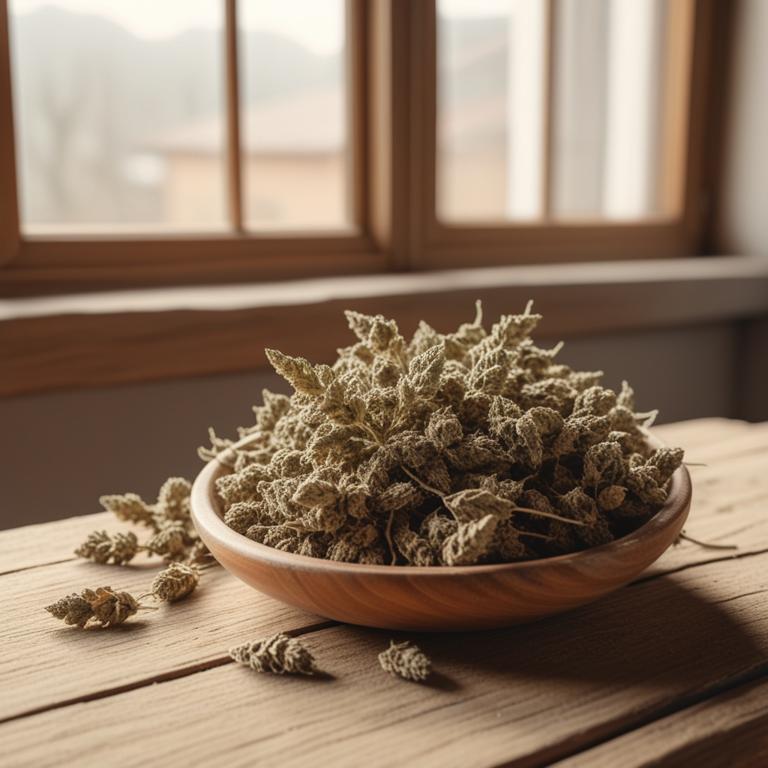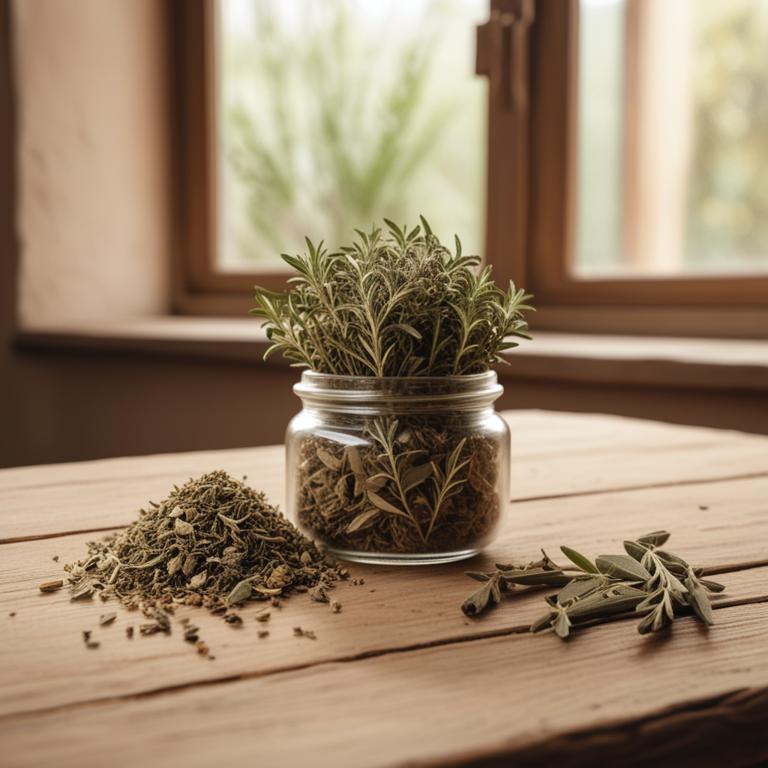Updated: Dec 1, 2024
The Role of Medicinal Herbs in Preventing and Treating Dental Plaque
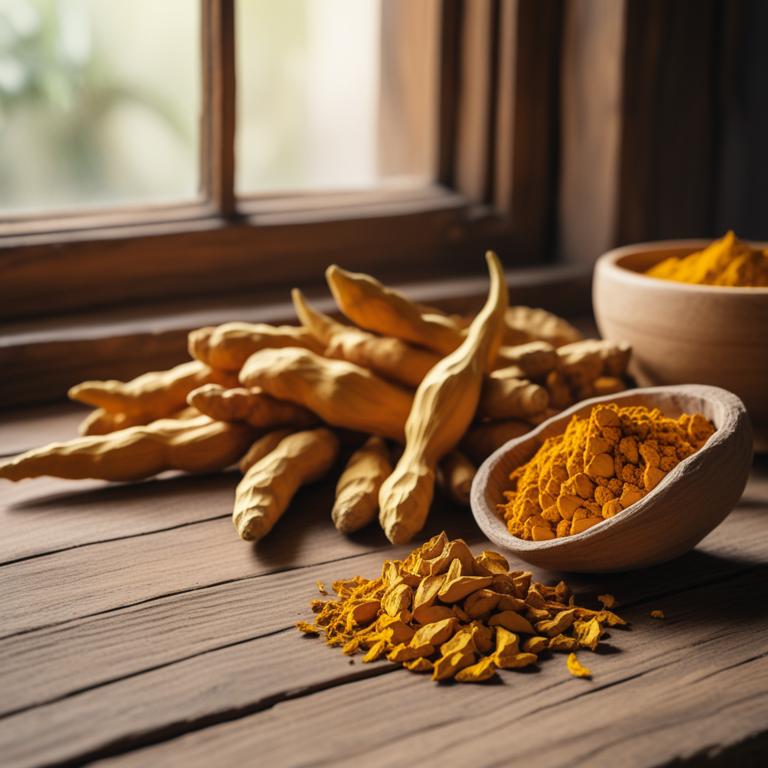
Dental plaque is a sticky film of bacteria that forms on your teeth, especially along the gum line.
If left untreated, it can lead to gum disease, bad breath, and even tooth loss. The main cause of dental plaque is poor oral hygiene, including not brushing and flossing regularly. When food particles and bacteria mix, they create a perfect environment for plaque to develop. To combat dental plaque, some people turn to herbal remedies. Certain herbs have been found to have antibacterial properties that can help combat the bacteria that cause plaque.
Turmeric, for example, contains curcumin, a compound that has been shown to reduce inflammation and kill bacteria. Cloves also have antibacterial properties, and have been used for centuries to freshen breath and reduce gum inflammation. These herbs can be consumed in various forms, including teas and mouthwashes. Some people drink a warm cup of turmeric tea after meals to help reduce plaque buildup. Clove oil can be added to a mouthwash to help kill bacteria and freshen breath. Some people also use clove-infused toothpaste to help prevent plaque from forming in the first place.
While these herbal remedies may not replace regular brushing and flossing, they can be a useful addition to a healthy oral hygiene routine.
Table of Contents
- What factors lead to the formation of dental plaque?
- What are the benefits of employing herbs for dental plaque?
- Which medicinal herbs are effective against dental plaque?
- What are the widely used herbal preparations for removing dental plaque?
- What herbs should be avoided if you have a condition called dental plaque?
- FAQ
What factors lead to the formation of dental plaque?
The main causes of dental plaque are often related to the way we eat, drink, and take care of our teeth.
Poor oral hygiene is one of the main causes, as not brushing and flossing regularly allows bacteria to build up on our teeth. When we eat sugary foods, the bacteria in our mouths feed on the sugar and produce acid, which helps to create a sticky film on our teeth called plaque.
Starchy foods also contribute to plaque formation, as they break down into sugar in our mouths, providing a food source for bacteria. Acidic foods, such as citrus fruits and soda, can erode tooth enamel, making it easier for plaque to form. Fermentable carbs, like those found in bread and pasta, are also a culprit, as they are broken down into sugar and contribute to plaque growth.
Even diet soda can be a problem, as many of these drinks contain citric acid, which can erode tooth enamel and contribute to plaque formation.
What are the benefits of employing herbs for dental plaque?
Using herbs for dental plaque has many benefits.
One of the main advantages is that they are a natural and non-invasive way to remove plaque and prevent gum disease. They can be used to reduce inflammation and kill bacteria that can cause problems. Some herbs have antibacterial properties that help stop the growth of bacteria that cause plaque and gum disease.
Others have anti-inflammatory properties that reduce swelling and pain in the gums. This can help prevent conditions like gingivitis and periodontitis. By using herbs, you can also avoid using chemicals that may have side effects. Moreover, many herbs have been used for centuries in traditional medicine for their dental health benefits.
They are also easily available and can be used in various forms, such as teas, oils, and mouthwashes.
Which medicinal herbs are effective against dental plaque?
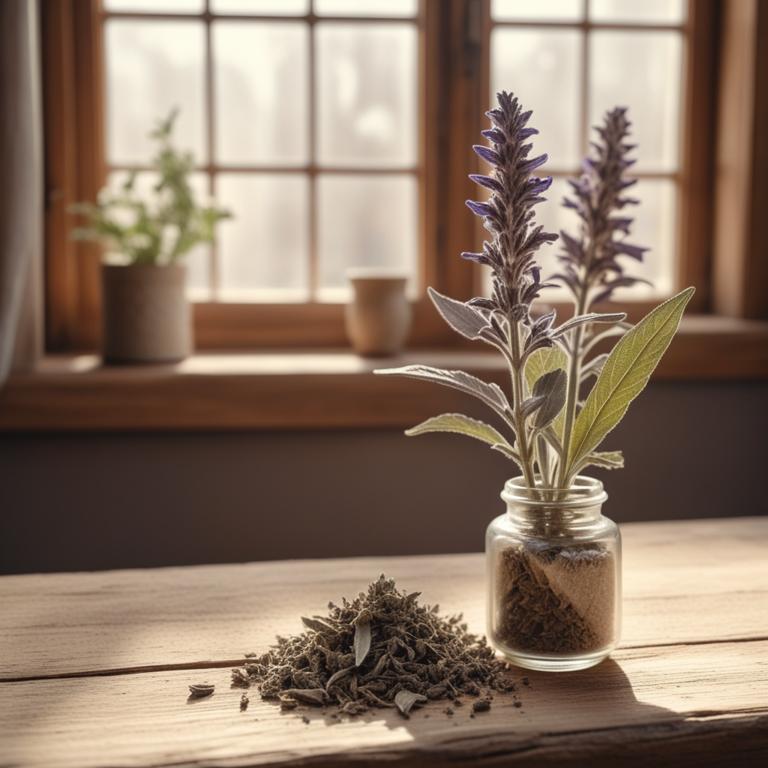
When it comes to dental plaque, we're not just talking about a pesky buildup of bacteria and food particles on our teeth.
It can lead to cavities, gum disease, and even tooth loss. So, what can we do to prevent it?. Herbs like Salvia officinalis, also known as sage, come to the rescue. The antioxidants and flavonoids in sage help reduce inflammation in the gums and prevent the growth of bacteria that cause plaque. Another herb that's great for fighting plaque is Eucalyptus globulus. The essential oil extracted from its leaves has antibacterial properties that kill the bacteria that contribute to plaque buildup. This means that eucalyptus oil can help prevent the formation of plaque and reduce the risk of gum disease. Thymus vulgaris, or thyme, is another herb that's been shown to have anti-plaque properties.
The compounds in thyme, such as thymol and carvacrol, have antimicrobial effects that inhibit the growth of bacteria that cause plaque. This makes thyme a great addition to your oral hygiene routine. Cinnamomum zeylanicum, also known as cinnamon, is a spice that has been used for centuries to freshen breath and prevent dental problems. The active compounds in cinnamon, such as cinnamaldehyde, have antimicrobial properties that help reduce the bacteria that cause plaque buildup. This means that cinnamon can help prevent the formation of plaque and reduce the risk of gum disease. Finally, Cymbopogon citratus, or lemon grass, is another herb that's been shown to have anti-plaque properties. The essential oil extracted from its leaves has antimicrobial effects that inhibit the growth of bacteria that cause plaque. This makes lemon grass a great addition to your oral hygiene routine.
These herbs can be used in various forms, such as essential oils, teas, or even mouthwashes, to help prevent dental plaque and promote good oral health.
What are the widely used herbal preparations for removing dental plaque?
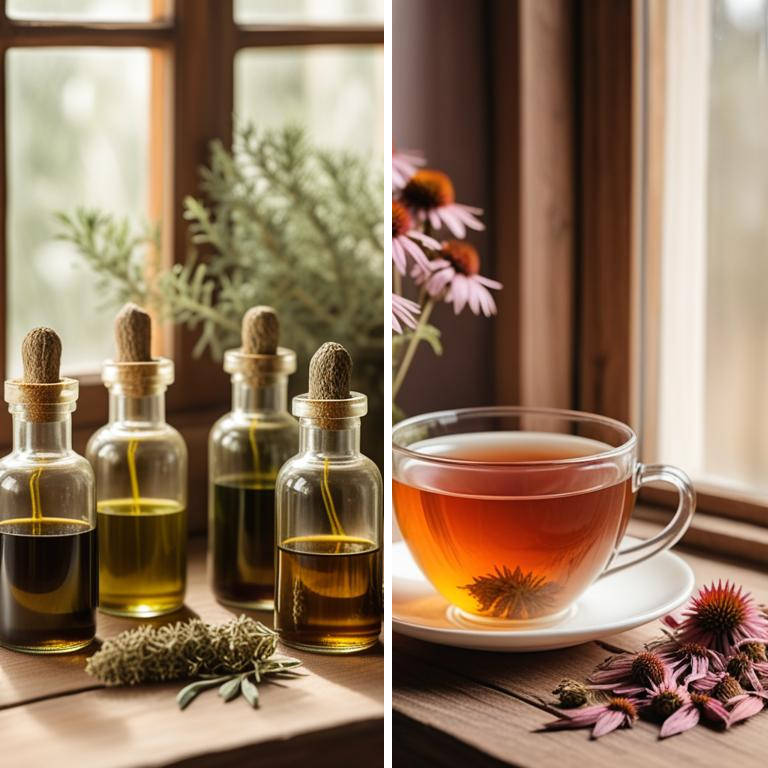
Herbal preparations can be good for dental plaque because they often have antibacterial properties that help kill the bacteria that cause plaque.
A decoction is a strong liquid made by boiling herbs in water. This process helps release the active ingredients from the herbs, which can then kill bacteria and prevent plaque from forming. Some herbs like neem and tea tree can be made into a decoction to help reduce plaque. A tincture is a liquid extract made from herbs. This concentrated liquid can be applied directly to the teeth and gums to kill bacteria and prevent plaque from forming. Tinctures like those made from clove and myrrh are commonly used for their antibacterial properties. Capsules are small, easy-to-swallow containers filled with dried herbs.
They can be taken orally to help reduce inflammation and kill bacteria that cause plaque. Herbs like turmeric and ginger are often made into capsules to help prevent plaque. An infusion is a liquid made by steeping herbs in water. This can be done with loose-leaf herbs or herbal tea bags. Infusions like those made from peppermint and eucalyptus can help reduce plaque by killing bacteria and freshening breath. Lastly, tea is a liquid made by steeping herbs in hot water. Like infusions, teas can be made with loose-leaf herbs or tea bags.
Some teas like those made from green tea and licorice root are known for their antibacterial properties and can help prevent plaque.
Additional Resources:
What herbs should be avoided if you have a condition called dental plaque?
If you have dental plaque, it's best to be careful with certain herbs.
For example, Zingiber officinale, also known as ginger, can cause irritation and inflammation in the mouth, which can make plaque worse. This is because ginger has compounds that can make your gums more sensitive and increase blood flow, which can be problematic if you already have plaque. Curcuma longa, or turmeric, is another herb you should be cautious with. While it has anti-inflammatory properties, it can also cause allergic reactions and skin irritation, including in the mouth. If you already have plaque, using turmeric can lead to increased inflammation and discomfort. Glycyrrhiza glabra, or licorice root, can also be a problem.
It can cause your mouth to produce more saliva, which may seem like a good thing, but it can actually make plaque worse by allowing bacteria to multiply more easily. This can lead to more inflammation and other problems. Mentha x piperita, or peppermint, is another herb to be careful with. While it's often used for its fresh, cooling taste, it can also be quite drying to the mouth. If you have plaque, peppermint can make your mouth even drier, which can lead to more problems and discomfort. Rosmarinus officinalis, or rosemary, is another herb to be cautious with if you have dental plaque. Like ginger, it can cause irritation and inflammation in the mouth, which can make plaque worse.
This is especially true if you have sensitive gums or other oral health issues.
FAQ
Are there any specific herbs that can prevent dental plaque?
Some herbs, like neem and sage, have been found to help prevent dental plaque.
Neem's antibacterial properties help kill bacteria that cause plaque, while sage's antioxidants reduce inflammation and prevent damage to teeth and gums.
These herbs can be used in various forms, including mouthwashes, toothpaste, and essential oils.
Is it safe to use herbal remedies for dental plaque during pregnancy?
It's not recommended to use herbal remedies for dental plaque during pregnancy.
Some herbs can cause harm to the baby or affect the pregnancy.
The effects of herbal remedies on pregnancy are not well understood, and it's best to stick with safe and tested methods for removing plaque and preventing dental problems during pregnancy.
Are there any herbs that can reduce the frequency of dental plaque?
Some herbs, like neem and clove, may help reduce the frequency of dental plaque.
Neem has antibacterial properties that can kill bacteria causing plaque, while clove oil's antimicrobial properties help prevent plaque formation.
These herbs may be found in some oral care products or used as mouthwashes to promote healthier teeth and gums.
Can i combine different herbal remedies for dental plaque?
You can combine different herbal remedies for dental plaque, but be cautious.
Some herbs may interact with each other or worsen certain conditions.
For example, combining tea tree oil with neem oil may help control plaque and gum inflammation, but use them in moderation and in a balanced way to avoid any potential issues.
Related Articles

Nose Bleeding: Causes and Alternative Therapies with Medicinal Herbs

Dry Skin Relief: Understanding Causes and Herbal Preparations
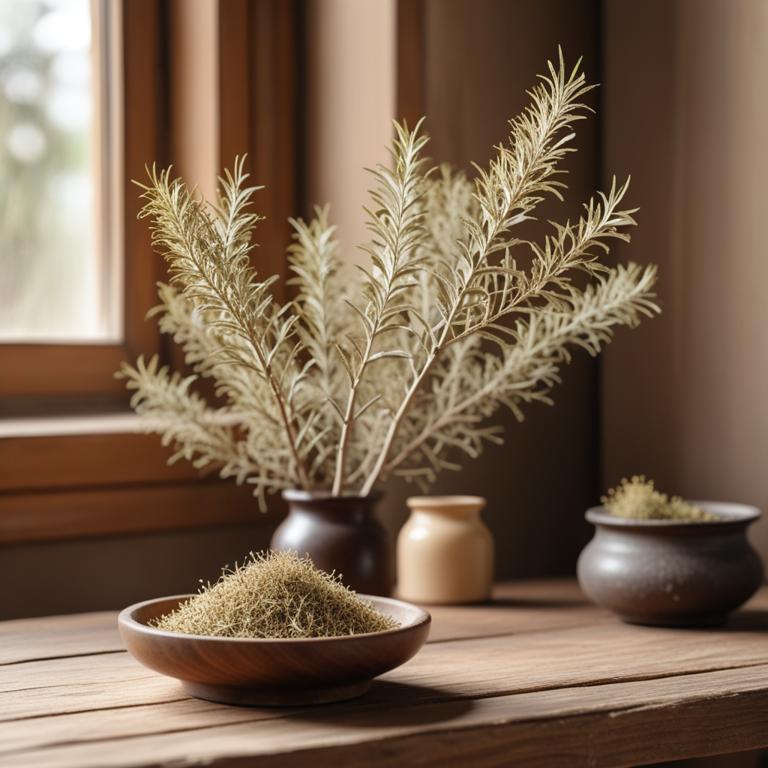
Natural Treatments for Nail Fungus: Causes and Herbal Remedies
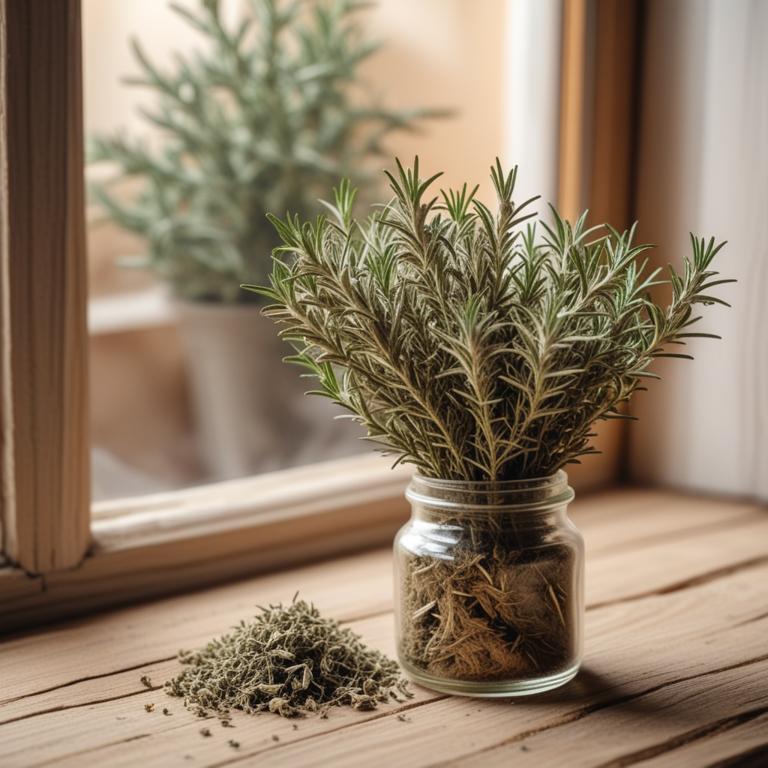
Oily Face: Causes and Natural Remedies Using Medicinal Herbs and Herbal Preparations
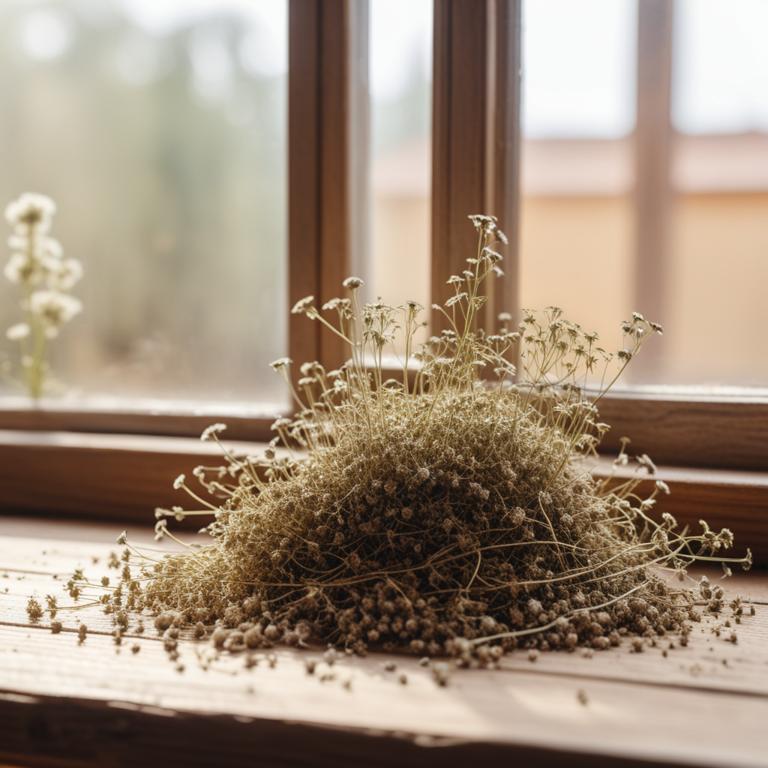
Puffy Eyes: Understanding the Causes and Finding Natural Remedies
